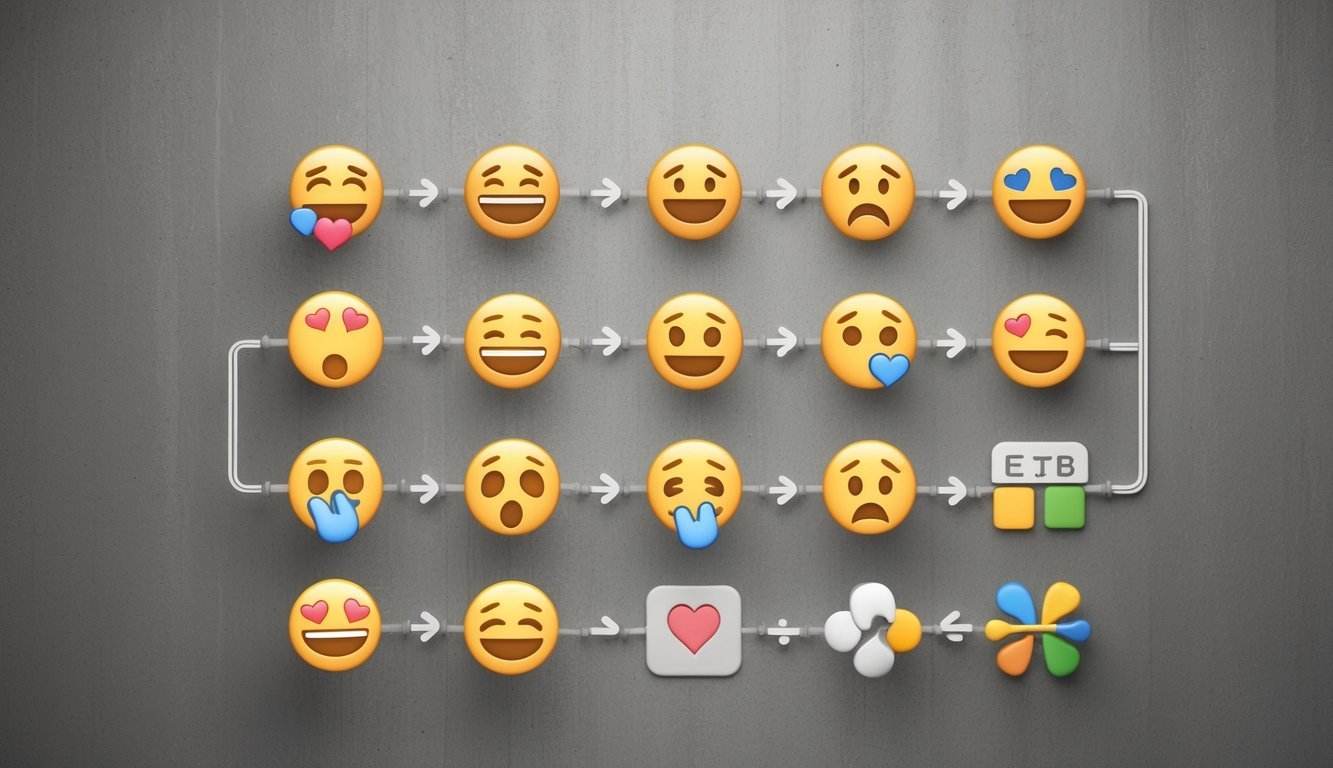PsychNewsDaily Publishers
100 Summit Drive
Burlington, MA, 01803
Telephone: (320) 349-2484
PsychNewsDaily Publishers
100 Summit Drive
Burlington, MA, 01803
Telephone: (320) 349-2484
A study by Dr. Simon Dubé identifies a correlation between emotional intelligence, attachment styles, and emoji usage, revealing gender differences in digital communication practices.


A recent study published in PLOS ONE unveils a captivating connection between emoji usage and two significant psychological factors: emotional intelligence and attachment style. Conducted by Dr. Simon Dubé, a Research Fellow at The Kinsey Institute, Indiana University, along with his colleagues, the research reveals that people with higher emotional intelligence tend to sprinkle emojis more liberally into their interactions with friends. On the other hand, those with avoidant attachment styles display a marked reluctance to use these visual communicators, particularly in their relationships with friends and romantic partners.
The findings also highlight intriguing differences along gender lines and across various types of relationships. For example, women consistently incorporate emojis into their communications with friends and family more than men do, suggesting a nuanced approach to emotional expression in digital landscapes.
Emojis serve as powerful visual proxies for feelings, objects, and myriad concepts, elevating the emotional resonance of messages exchanged through channels like smartphones and computers. Despite their pervasive presence in modern interactions, the understanding of who uses emojis and why, beyond established gender differences, remains relatively limited.
In their exploration of the interplay between emotional intelligence, attachment styles, and the frequency of emoji usage, Dubé and his team surveyed 320 adults. Emotional intelligence encompasses the ability to recognize and regulate one’s emotions while empathizing with others’ feelings. Attachment styles, influenced by early relationships with caregivers, guide how people navigate close connections and fall into three main categories: anxious, avoidant, and secure.
The study’s findings suggest that those with higher emotional intelligence and secure attachment styles engage with emojis more readily in their communications. Notably, the data points to women with avoidant attachment tendencies sending emojis less frequently to friends and dating partners. In a parallel observation, men with similar avoidant attachment profiles also display a tendency to send fewer emojis to their romantic partners.
The research further underscores that women, overall, embrace emojis more wholeheartedly than men, particularly when connecting with friends and family.
However, it is crucial to note the study’s limitations; the participants were predominantly white, educated, married, English-speaking heterosexual individuals residing in the United States. Still, the researchers are optimistic that their findings open avenues for deeper inquiry into the intersections of psychology, digital communication, and the dynamics of attachment and emotional intelligence.
The way people engage in virtual communication offers valuable insights into their personalities. The use of emojis is more than a contemporary digital quirk; it allows for the conveyance of profound emotional messages and enhances the fabric of human connection in an increasingly digital world.
For further details, refer to the study in PLOS ONE.
“`